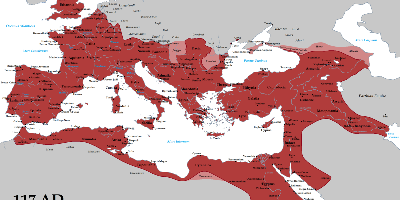2 janv. 86 av. J.-C. - Marius Elected Consul
Description:
While Sulla was on campaign in Greece, fighting broke out between the conservative supporters of Sulla, led by Octavius, and the popular supporters of Cinna over voting rights for the Italians. When Cinna was forced to flee the city by Octavius' gangs, he was able to rally significant Italian support: some 10 legions including the Samnites.Marius along with his son then returned from exile in Africa to Etruria with an army he had raised there and placed themselves under consul Cinna's command to oust Octavius. Cinna's vastly superior army coerced the Senate into opening the gates of the city.
While Cinna had sworn an oath not to kill anyone, Marius and his soldiers had not. They entered Rome and started murdering the leading supporters of Sulla, including Octavius. Their heads were exhibited in the Forum. Fourteen of the victims, including six former consuls, were noteworthy individuals: Lucius Licinius Crassus (older brother of the triumvir), Gaius Atilius Serranus, Marcus Antonius Orator, Lucius Julius Caesar, his brother Caesar Strabo, Quintus Mucius Scaevola the Augur, Publius Cornelius Lentulus, Gaius Nemotorius, Gaius Baebius and Octavius Ruso. For five days, the Marian faction purged the city of its enemies before putting an end to the terror. Following the short purge, Cinna organised elections, where he permitted two people to run for consul: himself and Marius. Naturally, they were elected as consuls for 86 BC.
Plutarch relates several opinions on the end of Marius: one, from Posidonius, holds that Marius contracted pleurisy; Gaius Piso has it that Marius walked with his friends and discussed all of his accomplishments with them, adding that no intelligent man ought leave himself to fortune. Plutarch then anonymously relates that Marius, having gone into a fit of passion in which he announced in a delusionary manner that he was in command of the Mithridatic War, began to act as he would have on the field of battle; finally, Plutarch relates, that ever an ambitious man, Marius lamented, on his death bed, that he had not achieved all of which he was capable, despite his having acquired great wealth and having been chosen consul more times than any man before him.
Marius died on 13 January 86 BC, just seventeen days into his seventh consulship. Lucius Valerius Flaccus succeeded Marius as consul. Cinna would lead the Marian faction into the civil war, which continued until Sulla won control of the state and made himself dictator with an undefined term.
Ajouté au bande de temps:
Date:
2 janv. 86 av. J.-C.
Maintenaint
~ Il y a 2113 ans
